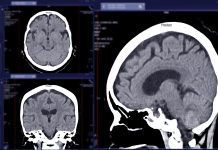Dr Rayaz A Malik, Professor of Medicine at Weill Cornell Medicine-Qatar, discusses the challenges and impact of misdiagnosis and late diagnosis in type 1 diabetes
Establishing the incidence of adult-onset type 1 diabetes is challenging as diabetes in adults is predominantly due to type 2 diabetes. (1-2) Indeed, a recent meta-analysis (3) demonstrated an incidence of 15 per 100,000 people. To add to the complexity of diagnosing adult-onset type 1 diabetes, multiple studies now recognise two major subtypes (severe autoimmune diabetes (SAID) and severe insulin-deficient diabetes (SIDD)) of type 2 diabetes, also characterised by early insulin deficiency. (4)
Misclassification can lead to a delay in treatment with insulin and is associated with significant morbidity and mortality due to the development of diabetic ketoacidosis (5) in both type 1 and type 2 diabetes. (6) Better clinical pathways to diagnose and manage such patients are required to improve the outcomes of patients worldwide.
What is the significance of early diagnosis?
Early and accurate diagnosis and appropriate management can have a significant impact on both acute (DKA) and chronic long-term complications in adult-onset type 1 diabetes. Delayed initiation of insulin with hyperglycemia can lead to the development of microvascular complications affecting the eyes, kidneys and nerves.
The diagnosis of type 1 diabetes brings major changes to your diet and the way you exercise. Thus, patients have to become adept at calorie counting and modifying what and when they eat in relation to blood glucose monitoring to limit both hypoglycemia and hyperglycemia in relation to treatment with insulin. Early and optimal control of high blood sugars is key to limiting the development and progression of the microvascular and cardiovascular complications of diabetes, as evidenced by the Diabetes Control and Complications Trial (DCCT) and the Epidemiology of Diabetes Interventions and Complications (EDIC) study. (7)
Late diagnosis of type 1 diabetes can be overwhelming and may have a major impact on the mental health of the individual. Thus, there is a need to educate medical practitioners and the general population to readily recognise the major symptoms and signs of type 1 diabetes and initiate appropriate laboratory tests to help confirm or refute the diagnosis.
Contributing factors to adult-onset type 1 diabetes
Adult-onset type 1 diabetes has a complex etiology with genetic and immune factors leading to destruction of the insulin-producing beta cells in the pancreas. The HLA (human leukocyte antigen) region is a critical susceptibility locus for many autoimmune diseases, including type 1 diabetes, as it plays a crucial role in regulating the immune system. In addition to genetic predisposition, environmental factors like diet and exposure to toxins and viruses in certain geographical locations can potentially trigger adult-onset type 1 diabetes. (8)
It is important to remember that type 1 diabetes is a multifactorial disease, and what triggers its onset in one adult might not trigger it in another. It is unlikely that any one trigger will be the cause. Nevertheless, genetics, co-existing autoimmune conditions, viral infections and exposure to other environmental triggers, alongside stress and hormonal changes, should all be considered risk factors. An awareness of the major symptoms, including excessive thirst, fatigue, unexplained weight loss, and frequent urination, can help to identify type 1 diabetes early.
How can policymakers and the healthcare systems help?
The rate of misdiagnosis and late diagnosis for adults with type 1 diabetes is unacceptably high. The Diabetes Alliance for Research in England found that, of patients diagnosed over the age of 30 years old, 38% with type 1 diabetes were misdiagnosed with type 2 diabetes and did not receive insulin at diagnosis. (9) Enhanced awareness and timely blood glucose testing in high-risk groups, as advocated through governmental policy, can improve diagnosis.
Type 1 diabetes affects more than just the patient; it affects the immediate family, healthcare professionals, and the health system. Clinical care pathways should be prioritised, with efforts to provide integrated care and access to dieticians, endocrinologists, and mental health specialists. Empowering patient advocacy is an important part of ensuring that patients feel comfortable speaking up about their own health.
Funding bodies should ensure adequate funding and resources for clinical research that improves our understanding of the underlying mechanisms and facilitates early diagnosis and more effective treatment of adult-onset type 1 diabetes.
References
- https://diabetesjournals.org/care/article/45/4/994/144901/The-Incidence-of-Adult-Onset-Type-1-Diabetes-A
- https://www.ncbi.nlm.nih.gov/pmc/articles/PMC10628058/
- https://www.ncbi.nlm.nih.gov/pmc/articles/PMC7146037/
- https://pubmed.ncbi.nlm.nih.gov/36402758/
- https://pubmed.ncbi.nlm.nih.gov/33713717/
- https://pubmed.ncbi.nlm.nih.gov/35985426/
- https://diabetesjournals.org/care/article/37/1/9/31789/The-Diabetes-Control-and-Complications-Trial
- Todd JA, Etiology of Type 1 Diabetes. Immunity; 2010; 32: 457-467. ISSN 1074-7613, https://doi.org/10.1016/j.immuni.2010.04.001
- https://www.ncbi.nlm.nih.gov/pmc/articles/PMC6559997/








